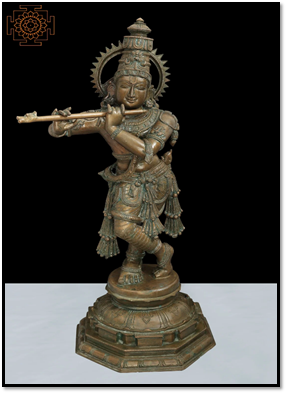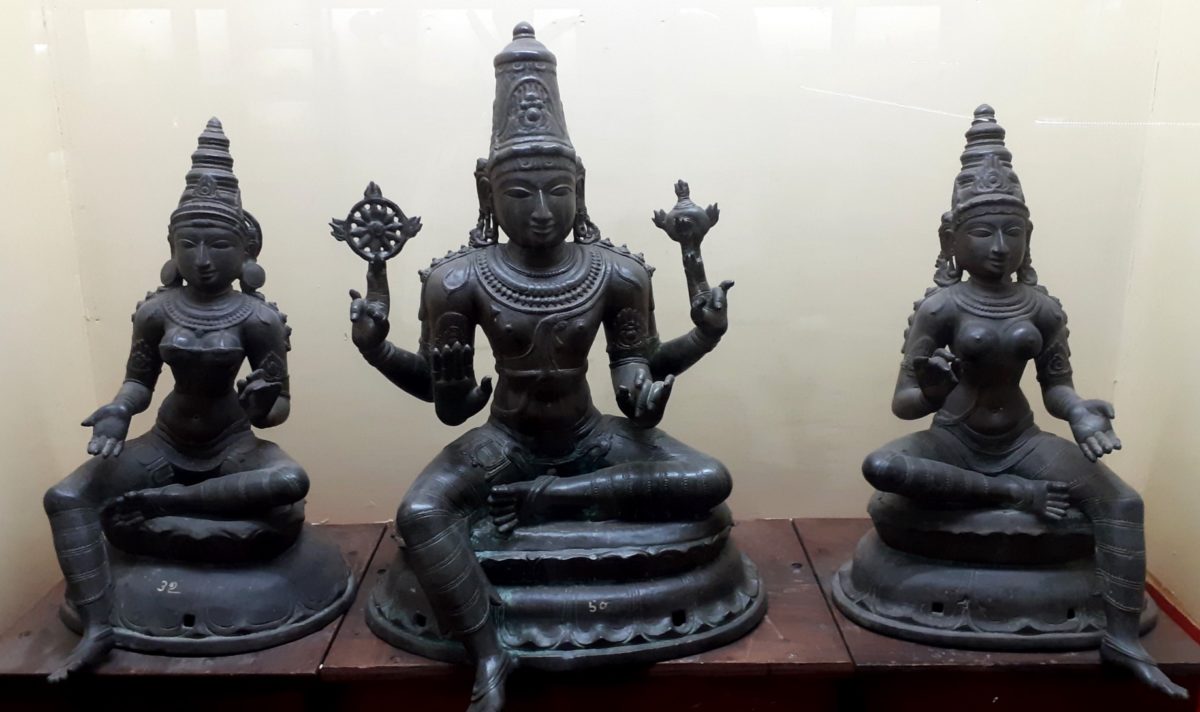ॐ श्री गुरुभ्यो नमः ॐ श्री शिवानन्दाय नमः ॐ श्री चिदानन्दाय नमःॐ श्री दुर्गायै नमः
Source of all Images in this Blog-post : Google Images : ‘Google Image Search’ will reveal the multiple sources of every single image shared here. For more details, kindly see ‘Disclaimer‘
Introduction
In the heart of Tamil Nadu, nestled amidst a region of rich culture and artistic heritage, the small town of Swamimalai stands out as a renowned center for the creation of exquisite bronze icons. These creations, hewn from tradition and passion, showcase the intricate artistry of the Swamimalai bronze artisans, who have honed their skills over generations to produce timeless works of religious and cultural significance.
The Art of Swamimalai Bronze Icons
Swamimalai is celebrated for its unparalleled expertise in the art of crafting bronze idols, particularly focusing on the deities of Hinduism. This small town, situated near the renowned temple town of Kumbakonam, has earned its reputation as a hub for skilled craftsmen who have dedicated their lives to this meticulous art form.
Craftsmanship: The creation of Swamimalai bronze icons is a labor-intensive and sacred process. Skilled artisans use a lost wax casting technique that has remained virtually unchanged for centuries. This intricate method begins with a clay core, which is meticulously molded to the desired shape. Layers of wax are then applied and sculpted to perfection. Once the wax model is ready, it is encased in a ceramic shell and heated, melting away the wax and leaving a hollow mold. Molten bronze is poured into this mold, taking the form of the deity. After cooling, the ceramic shell is broken, revealing the divine creation within.
Intricate Detailing: What sets Swamimalai bronze icons apart is their extraordinary level of detailing. Artisans employ fine chisels and delicate instruments to carve intricate designs on the bronze surface. From the deities’ facial expressions to their ornaments and attire, every element is finely wrought with remarkable precision. This craftsmanship reflects the artisans’ deep reverence for the deities and their commitment to preserving the divine forms.
Traditional Techniques: Swamimalai bronze icons are steeped in tradition, and the artisans continue to use age-old techniques that have been passed down through the generations. The knowledge and skills required for this art form are often transmitted from master to apprentice within families, preserving the authenticity and integrity of the craft.
Religious Significance
These bronze icons hold profound religious significance for the people of Tamil Nadu and beyond. They are not merely works of art but vessels of spirituality and devotion. Swamimalai bronze idols depict various Hindu deities, with Lord Ganesha, Lord Shiva, and Goddess Parvati being among the most commonly crafted figures.
Devotees and collectors alike appreciate the spiritual resonance of these bronze idols, believing that they bring blessings, protection, and grace into their lives. The rituals involved in consecrating and worshiping these idols are an essential part of the culture, connecting individuals with the divine.
Preservation and Recognition
The Swamimalai bronze icon-making tradition faces challenges in the modern era. The advent of mechanization and changing economic landscapes have impacted the livelihood of these artisans. However, organizations, scholars, and enthusiasts have recognized the need to protect and promote this ancient art form.
Efforts to support these artisans include training programs, exhibitions, and initiatives to expand the market for Swamimalai bronze icons both within India and abroad. These endeavors aim to ensure the continuity of this traditional craft, which remains an essential part of India’s cultural heritage.
Conclusion
The Swamimalai bronze icons are more than just artistic creations; they are living symbols of spirituality and devotion, meticulously crafted by skilled artisans who pour their hearts and souls into each piece. These divine figures transcend time, culture, and tradition, connecting people with the sacred through their grace and beauty. As the world continues to evolve, it is vital to preserve the legacy of Swamimalai bronze icons, ensuring that they remain an integral part of Tamil Nadu’s cultural tapestry and the world’s artistic heritage.






